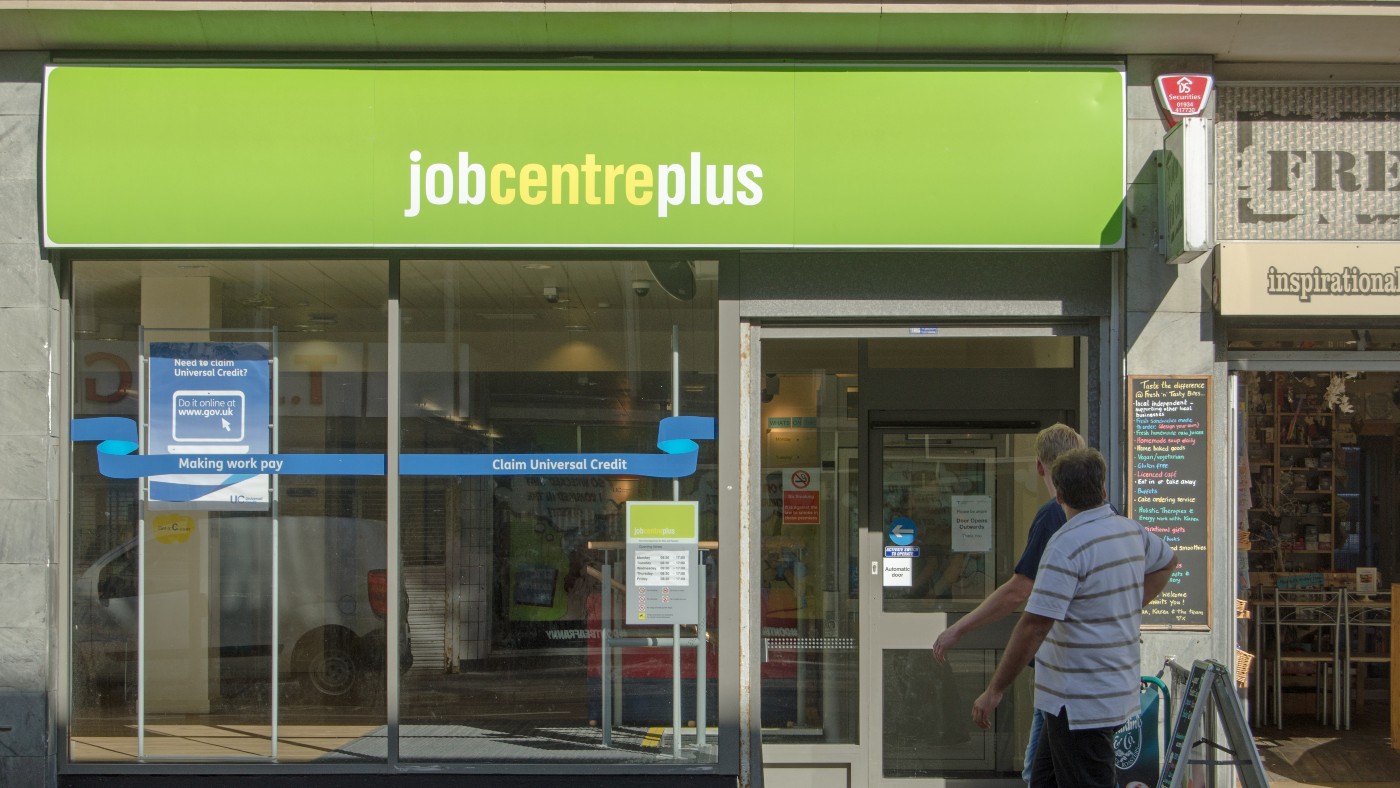Worklessness: a national 'scandal'
One in five working-age adults in Birmingham, Glasgow and Liverpool are neither in work nor seeking work

A free daily email with the biggest news stories of the day – and the best features from TheWeek.com
You are now subscribed
Your newsletter sign-up was successful
Britain's welfare system is "out of control", said Fraser Nelson in The Daily Telegraph.
One in five working-age adults in Birmingham, Glasgow and Liverpool are neither in work nor seeking work. It's even worse in Blackpool, where fully a quarter of working-age adults fall into that category.
Altogether, 2.4 million people across the country are on sickness benefits. "In the 1980s, such figures would have been seen as a scandal", requiring urgent corrective action. It doesn't cause such a fuss today, though, owing to the effects of mass migration. When you've got new arrivals settling at the rate of 3,000 a day, you can – at least for a while – ignore the fact that 4,000 more people a day are applying for sickness benefit. But that doesn't make the latter trend any less worrying. All credit, then, to the Government for belatedly acknowledging the problem of long-term worklessness and drawing up reforms to get people back into gainful employment. The current situation is a terrible waste of both money and lives.
The Week
Escape your echo chamber. Get the facts behind the news, plus analysis from multiple perspectives.

Sign up for The Week's Free Newsletters
From our morning news briefing to a weekly Good News Newsletter, get the best of The Week delivered directly to your inbox.
From our morning news briefing to a weekly Good News Newsletter, get the best of The Week delivered directly to your inbox.
'Fund social care properly'
This crackdown isn't about saving money or improving lives, said Frances Ryan in The Guardian. It's just a cynical attempt to whip up resentment against "scroungers". The basic social security rate is at the lowest level in real terms for 40 years, and "our unemployment pay is the stingiest in western Europe". Yet amid a brutal cost-of-living crisis, hundreds of thousands of disabled people have been told to look for work they can do from home, or face having their benefits cut by £4,680 a year.
Uncooperative welfare claimants could be stripped not just of their benefits, but also of their right to free prescriptions and bus passes. Even if these measures could be applied without cruelty, it's hard to see them proving all that effective, said Gaby Hinsliff in the same paper. A better plan would be, for instance, to "fund social care properly", so that it offered wages that were more tempting to homegrown workers.
'Politicians shouldn't be shamed'
Curbing the welfare bill is "a thankless task", said Camilla Cavendish in the FT, but it is necessary. Even with the Government's reforms, which aim to get nearly 700,000 people back into work, "the bill for incapacity benefits – already up from £15.9bn to £25.9bn in the past decade – is set to climb to £29.3bn by 2027-28".
The biggest relative jump in economic inactivity owing to long-term sickness is among the under-35s, whose main complaints are depression and anxiety. These problems are real, but they needn't be permanent. "Disentangling those who are too ill to work and in dire need of support from those who could hold down a job is a tortuous exercise. But politicians should not be shamed for trying to do so."
A free daily email with the biggest news stories of the day – and the best features from TheWeek.com
-
 Bad Bunny’s Super Bowl: A win for unity
Bad Bunny’s Super Bowl: A win for unityFeature The global superstar's halftime show was a celebration for everyone to enjoy
-
 Book reviews: ‘Bonfire of the Murdochs’ and ‘The Typewriter and the Guillotine’
Book reviews: ‘Bonfire of the Murdochs’ and ‘The Typewriter and the Guillotine’Feature New insights into the Murdoch family’s turmoil and a renowned journalist’s time in pre-World War II Paris
-
 Witkoff and Kushner tackle Ukraine, Iran in Geneva
Witkoff and Kushner tackle Ukraine, Iran in GenevaSpeed Read Steve Witkoff and Jared Kushner held negotiations aimed at securing a nuclear deal with Iran and an end to Russia’s war in Ukraine
-
 Democrats push for ICE accountability
Democrats push for ICE accountabilityFeature U.S. citizens shot and violently detained by immigration agents testify at Capitol Hill hearing
-
 Fulton County: A dress rehearsal for election theft?
Fulton County: A dress rehearsal for election theft?Feature Director of National Intelligence Tulsi Gabbard is Trump's de facto ‘voter fraud’ czar
-
 ‘Melania’: A film about nothing
‘Melania’: A film about nothingFeature Not telling all
-
 ‘The West needs people’
‘The West needs people’Instant Opinion Opinion, comment and editorials of the day
-
 Greenland: The lasting damage of Trump’s tantrum
Greenland: The lasting damage of Trump’s tantrumFeature His desire for Greenland has seemingly faded away
-
 Minneapolis: The power of a boy’s photo
Minneapolis: The power of a boy’s photoFeature An image of Liam Conejo Ramos being detained lit up social media
-
 The price of forgiveness
The price of forgivenessFeature Trump’s unprecedented use of pardons has turned clemency into a big business.
-
 Reforming the House of Lords
Reforming the House of LordsThe Explainer Keir Starmer’s government regards reform of the House of Lords as ‘long overdue and essential’